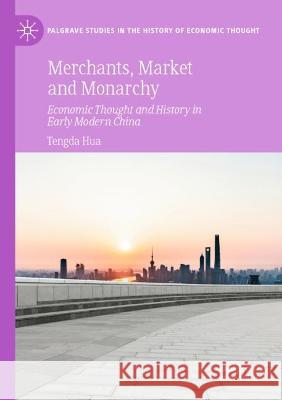Merchants, Market and Monarchy: Economic Thought and History in Early Modern China » książka
topmenu
Merchants, Market and Monarchy: Economic Thought and History in Early Modern China
ISBN-13: 9783030771911 / Angielski / Miękka / 2022
This book explores the vital role of merchants within early modern China. Unlike European merchants, their Sino-colleagues have long been regarded as certain social pariahs after pre-Qin period, despite the fortune they made. The key mission of this monograph is to investigate whether the standing of merchants in the Ming Empire has been improved compared with their predecessors. Generally, their status is reflected in state-merchant relationship and their role in the market, which can be found in miscellaneous economic activities such as market monopoly, commercial taxation, international trade, and consumption.











